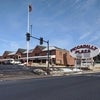What Lies Ahead for MetroWest Office Market?

With the Greater Boston commercial real estate market saying goodbye to 2013 with a strong fourth quarter, MetroWest still saw a rise in its office vacancy rate (17 percent to 20.1 percent, despite lower average rents for top-of-the-line, or Class A, space).
Hopkinton-based EMC’s decision to vacate its Westborough facility — and 382,000 square feet of space — certainly played a role, but what are some of the rental battles that will still linger for MetroWest in the New Year?
“Trends are still favoring the inner city,” said Brendan Carroll, senior vice president of research for Boston-based Transwestern RBJ. “Markets that require automobiles [like MetroWest] are still challenged.” He said that more college graduates are still demanding a commute in which they can walk or bike — a “live play” environment, he called it — complicating MetroWest employers’ retention or recruitment efforts.
Also, whereas Boston-area firms are motivated by many of the same drivers, MetroWest cities and towns are competing against each other, he said.
Certainly, there have been bright spots in the region’s office space market scene this past year.
Medical device maker Boston Scientific (BSX) of Natick decided to relocate its headquarters to Marlborough, a move that should be completed by summer. Computing software firm Mathworks has completed its $133-million, 166,000-square-foot expansion into the building BSX vacated. And TJX, the parent company of T.J. Maxx, Marshalls and HomeGoods decided to keep its Framingham headquarters and expand its Cochituate Road offices, to the tune of $23 million. And medical laboratory services provider Quest Diagnostics expanded its MetroWest footprint the past year; it acquired the UMass Memorial Medical Center’s clinical outreach lab business at the start of 2013 and plans to move those operations and Athena Diagnostics to Marlborough, at the former Hewlett-Packard campus.
Cost Advantages
Part of what draws businesses to MetroWest is its proximity to Boston and cheaper, yet value-packed, rents; prices in the Back Bay, for instance, are three times that of MetroWest. But where the MetroWest region is high on value as far as more Class A space for less money, Carroll said, the Greater Boston market is simultaneously getting bigger.
“Supply is 180 million square feet now, will be 185 million in just a few more years,” Carroll said of Boston. “Existing product is still sold to a satisfactory level.” And Greater Boston is not only doing well regionally, but nationally, he said, bucking a trend of contraction seen in most other locales, though Boston and Cambridge have some of the priciest office space in the U.S., he said.
That may still bode well for companies looking for the most bang for their buck. But retention challenges will always be there, Carroll said. “Markets that require automobiles are still challenged.”
Carroll indicated that efforts in MetroWest to create more of an urban core — such as revitalization efforts now underway in downtown Framingham — will help increase leasing activity along Interstate 495 and off the highway, as employees want places to lunch and shop near work. But it will take longer than it would in Boston, he noted.
What role do firms have in helping create urban cores and push this momentum forward? Perhaps for smaller companies, none at all.
Larger employers can create their own urban core, said Carroll. “But if I’m in a 50-person firm, that’s tough to do in uncharted territory,” he noted. With a larger employer, the ecosystem can grow with you, such as the Framingham and Natick interchanges, he said, with transportation and amenities. “It can be a very compelling product.”
(Image credit: freedigitalphotos.net)
Read more









0 Comments